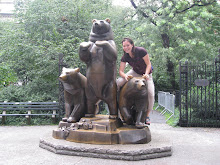The first article, the excerpt from Lum's book, tries to give a brief history of the study of media as environments or environments as media (one definition of media ecology). How environments affect people, language used changes interactions, and how communication changes when the media of communicating changes. New media change our sensorium; the manner in which we comprehend and construct our world and the internet is a multi-media environment that has different languages emerging, pictures,videos, music, vlogging, blogging, fanfiction, and hundreds of different ways of expressing oneself. Each different physical/symbolic characteristic of a medium of communication has its own bias and those biases and media change society. For example, the introduction of literacy diminishes the importance of the elder and that elder's experience of knowledge; they no longer have a monopoly on knowledge and that has a profound social impact. The internet has accelerated the changes that have occurred. Interestingly enough, the segment we read did not really hypothesize on how the internet media would change the society. That was found in Thompson's article.
"Web ushers in age of ambient intimacy" by Thompson talks specifically about the use of Facebook newsfeed, Twitter, and Flickr. The idea of microblogging that creates and "ambient awareness" wherein "little snippets [of information] coalesce into a surprisingly sophisticated portrait of friends' and family's lives... a pointillist painting." This was then related to how text messages sometimes feel more intimate than a phone call, in the same way that sitting next to someone yet not particularly talking can be more intimate than forcing a conversation (living together = intimacy). I definitely understood that. Ambient messages presented by Facebook Newsfeed and Twitter are ignorable; they aren't as cognitively demanding as emails and do not demand any response and merely are read at the leisure and want of the reader. It allows for people to have many more "loose ties" to people, while not expanding the number of "deep ties" a person might have. The article essentially argues that the Newsfeeds and Twitters of the internet have caused a return of small town life, of an era wherein everyone knows everyone else's business (at least in their social circle). They have destroyed/diminished the 'anomie' that many feared would form in people with the internet. It's merely another media change.
The Int'l Herald Tribune article argues that Twitter and Newsfeeds eliminated the ability to create one's own identity on the internet. Perhaps this is why groups like Anonymous have formed and anonymity seems to be growing in prevalence and popularity/attention in newsfeeds in recent years.
Thoughts...

That's really cool, that last paragraph is interesting. Do you think identity is lost through that stuff?
ReplyDeleteI think that Anon thrives because it doesn't have those rules or codes of individuals. Rather there are macro rules or codes that make them look like one big sentient actor.
http://www.youtube.com/watch?v=Aj6dbTo_gAM
Anon took down this kid over the weekend. It was cool to see the whole group act as one using a number of different web and IRL tools to harass him.